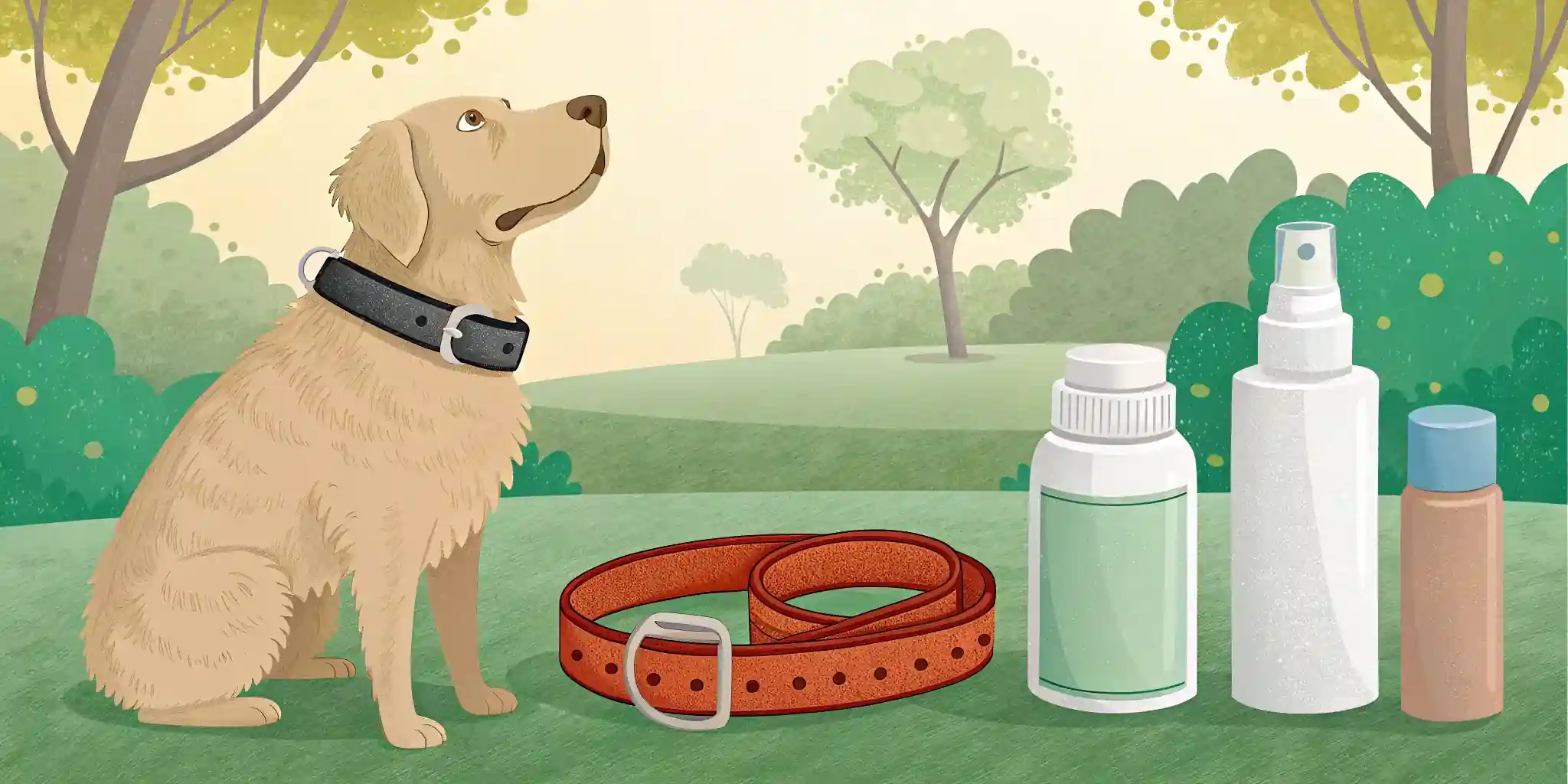
Dog Parasite Control: Year-Round Protection Tips
Dog parasite control isn't just for summer! Learn year-round protection tips to keep your furry friend healthy & happy. Click for vet-approved advice!
Parasite Control Year-Round: Ongoing Protection Strategies for Your Dog
As a veterinarian for over a decade, I’ve seen firsthand the havoc that parasites can wreak on our beloved canine companions. We often think about fleas and ticks in the warmer months, but year-round parasite control for dogs is crucial for their health and well-being. This isn’t just about comfort; it’s about preventing serious, potentially life-threatening diseases. Let’s dive into why ongoing protection is essential and how you can safeguard your furry friend.
Why Year-Round Protection Matters
Many pet owners believe that once the weather cools down, parasites disappear. Sadly, this isn’t true. While some parasites may become less active in the winter, they can still survive, especially in milder climates or indoors. Fleas, for instance, can thrive in a warm house throughout the year. Ticks, too, can become active on warmer winter days, and heartworm-carrying mosquitoes can remain a threat in many regions.
 A happy dog enjoying winter, but still at risk for parasites. Remember, even in the snow, parasites can pose a threat.
A happy dog enjoying winter, but still at risk for parasites. Remember, even in the snow, parasites can pose a threat.
Ignoring parasite control during the colder months leaves your dog vulnerable and allows parasite populations to rebound quickly in the spring. This can lead to more severe infestations and health problems down the line.
Common Canine Parasites and the Diseases They Carry
It’s important to understand the specific parasites that pose a threat to your dog and the diseases they can transmit:
-
Fleas: These pesky insects cause intense itching, skin irritation, and can transmit tapeworms. Severe infestations can lead to anemia, especially in puppies. Long-term flea treatment for dogs is essential to break the flea life cycle.
-
Ticks: Ticks are notorious carriers of diseases like Lyme disease, Ehrlichiosis, Anaplasmosis, and Rocky Mountain Spotted Fever. These diseases can cause fever, joint pain, lethargy, and even kidney failure. Protecting your dog from tick-borne diseases is paramount.
-
Heartworms: Transmitted by mosquitoes, heartworms live in the heart and lungs, causing severe damage and potentially fatal heart failure. Heartworm prevention is much safer and more affordable than treating a heartworm infection. Preventing heartworm in dogs year-round is the best approach.
-
Intestinal Worms (Roundworms, Hookworms, Whipworms, Tapeworms): These parasites live in the intestines, causing diarrhea, vomiting, weight loss, and poor coat quality. Puppies are especially susceptible to intestinal worm infestations.
Choosing the Right Parasite Control Products
There are many parasite control products available, including:
-
Topical Medications: Applied to the skin, these medications can protect against fleas, ticks, and sometimes heartworms and intestinal worms.
-
Oral Medications: Given as a pill or chewable tablet, these medications can protect against fleas, ticks, heartworms, and intestinal worms.
-
Collars: Parasite control collars release medication over time to protect against fleas and ticks.
The best choice for your dog will depend on several factors, including your dog’s breed, age, lifestyle, and any underlying health conditions. In my experience, it’s always best to consult with your veterinarian to determine the most effective and safest parasite control plan for your individual dog. Don’t just grab a product off the shelf; get professional guidance.
 A variety of parasite prevention products. Consult with your vet to find the best option for your dog.
A variety of parasite prevention products. Consult with your vet to find the best option for your dog.
Creating a Year-Round Parasite Control Plan
-
Consult with your veterinarian: This is the most important step. Your vet can assess your dog’s risk factors and recommend the most appropriate parasite control products.
-
Choose a year-round preventative: Opt for a product that provides continuous protection against fleas, ticks, heartworms, and intestinal worms.
-
Administer medication consistently: Set reminders to administer medication on time. Missed doses can leave your dog vulnerable to parasite infestations.
-
Practice good hygiene: Regularly clean your dog’s bedding, vacuum your home, and remove feces from your yard to reduce parasite populations.
-
Inspect your dog regularly: Check your dog for fleas and ticks, especially after spending time outdoors.
-
Consider environmental control: Treat your yard for fleas and ticks if you live in a high-risk area.
Addressing Common Concerns
-
“Are parasite control products safe for my dog?” Most parasite control products are safe when used as directed. However, some dogs may experience side effects. Discuss any concerns with your veterinarian.
-
“My dog is mostly indoors. Do they still need parasite protection?” Yes! Even indoor dogs are at risk. Fleas and ticks can be brought inside on clothing or by other pets. Mosquitoes can also enter your home.
-
“Can I use natural remedies for parasite control?” While some natural remedies may offer some level of protection, they are generally not as effective as conventional medications. I believe that relying solely on natural remedies can put your dog at risk.
 A veterinarian examining a dog during a check-up. Regular check-ups are crucial for parasite prevention and overall health.
A veterinarian examining a dog during a check-up. Regular check-ups are crucial for parasite prevention and overall health.
The Bottom Line
Preventing parasites in dogs is a year-round commitment. By working with your veterinarian and implementing a comprehensive parasite control plan, you can keep your dog healthy and happy, no matter the season. Don’t wait until you see fleas or ticks; proactive prevention is the key!


